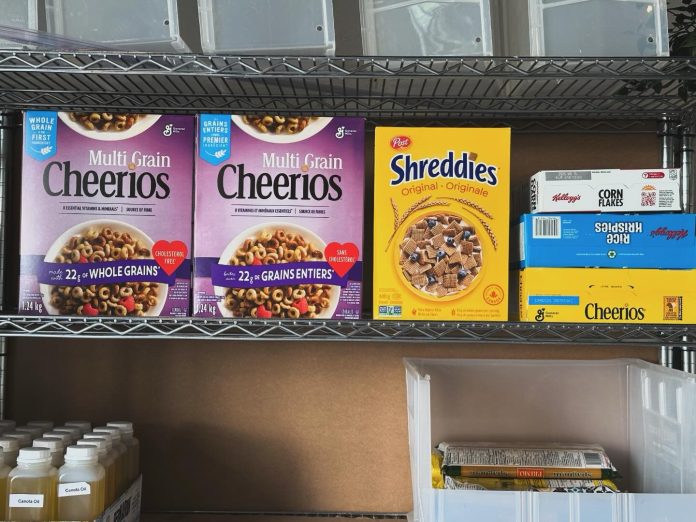If you’ve gone through the checkout at a grocery store recently, chances are you’ve noticed you’re paying more for less. But it’s not just consumers feeling the pinch.
Food banks across Ottawa are facing record demand and new challenges as they try to ensure no one goes hungry.
At the Westboro Regional Food Bank which operates out of All Saints Anglican Church, there are about 30 appointments a day three times a week. That could total over 100 people a day as each appointment can be for an individual or families, varying in size.
To keep up with the rise in need, the Westboro food provider has needed to limit how often its clients can access goods, reducing from every 14 days to every 30. Some products like cheese and yogurt have also been eliminated from its shelves.
“The major need comes from newcomers who are at the Richmond Plaza Motel. Many of them have been there longer than a temporary residence. They range from children and babies to adults and seniors,” said Chung Yan Lam, coordinator of the Westboro Region Food Bank and Priest at All Saints Westboro Church.
“Some of our seniors come from the Grace Manor on Richmond road where there is subsidized housing,” she added. “I wish I could give each of them bags and bags of food to take home. It’s heartbreaking.”
Given the reduction in service, clients have asked where they can offset the negative effects, but Lam admits there aren’t many alternatives.
Cash donations go the furthest because it allows food agencies to buy what they need in bulk, but the Westboro Food Bank also collects physical donations of canned food, dried fruits and nuts, toiletries, feminine hygiene products, and dried chickpeas — which they are currently seeing a shortage of. A fundraising initiative from a local condominium recently brought in $10,000.
In addition to food items, All Saints also operates the ‘New to You’ thrift shop which is open Wednesdays and Saturdays, run by a group of volunteers. It stocks gently used housing items and clothes which can be purchased at a cheap price.
Down the road in Wellington West, the Parkdale Food Centre (PFC) is seeing record need for their Mino’Weesini Grocery Program. In October 1,650 people used the service, the highest level of need ever seen. The initiative, which allows clients to go around the store and purchase food through a points program, costs about $18,000 a month to run.
“We can’t meet the demand consistently so we keep running out of our most desired items like butter, milk, and eggs. We have to keep a monthly budget because we don’t have unlimited money to buy and buy,” said PFC executive director Beth Ciavaglia.
The PFC only receives 20 per cent of its funding through the city. The rest comes from private donors with no support from upper levels of government. Their worst fear: the shelves could run empty if trends continue.
“It really does fall on the community whether that’s fair or unfair. Funds give us more buying power and we don’t have a ton of storage. So while we are thankful for food drives, it’s not always the most workable for us. We try to stock our shelves with the same items.”
The Ottawa Food Bank reported 50,000 people used its services in October 2024 — their highest demand in its 40-year history. Food insecurity in Ottawa has almost doubled this year due to the high cost of food and living. About one in four households are needing assistance to put food on the table.
